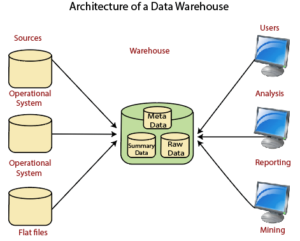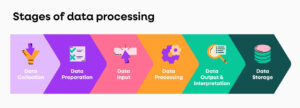Kanishk Bansod
BegginerResources & Suggestions
Mains Answer Writing Latest Articles
Daily Answer Writing Practice Questions (18 April 2025)
Do you agree with the claim that indecision and risk aversion are prevalent issues in Indian bureaucracy? Support your answer with logical reasoning. (150 words) ऐसा कहा जाता है कि भारतीय नौकरशाही में अनिर्णय और जोखिम से बचने की प्रवृत्ति ...
Strengthening India’s Cyber Defence
Rising Threats Digital Era Challenges: 2024 marks a significant rise in digital threats, particularly from AI and cyberattacks. Key Issues: Disinformation campaigns. Cyber fraud affecting daily life. Current Major Cyber Threats Ransomware Rampage: Over 48,000 instances of WannaCry ransomware detected ...
भारत की साइबर सुरक्षा
बढ़ते खतरे कृत्रिम बुद्धिमत्ता (AI) और साइबर हमले: 2024 में AI और साइबर हमलों के खतरे में वृद्धि। महत्वपूर्ण अवसंरचना पर हमले: डिजिटल हमलों और दुष्प्रचार अभियानों की संभावना बढ़ी है। प्रमुख साइबर खतरें रैनसमवेयर का प्रकोप: 48,000 से अधिक ...

Cyber security
Cyber Security is the practice of protecting systems, networks, and data from digital attacks, unauthorized access, and damage. As businesses increasingly rely on digital infrastructure, the importance of cybersecurity has grown exponentially. Effective cybersecurity measures safeguard sensitive infRead more
Cyber Security is the practice of protecting systems, networks, and data from digital attacks, unauthorized access, and damage. As businesses increasingly rely on digital infrastructure, the importance of cybersecurity has grown exponentially. Effective cybersecurity measures safeguard sensitive information, ensure the integrity of digital operations, and protect against financial losses, reputational damage, and legal consequences.
Key aspects of cybersecurity include:
For example, in 2017, the WannaCry ransomware attack affected thousands of organizations worldwide by exploiting a vulnerability in Windows operating systems. Companies with robust cybersecurity measures, including up-to-date software patches and effective backup systems, were able to mitigate the damage and recover more quickly. This incident highlighted the importance of proactive cybersecurity practices and preparedness.
In conclusion, cybersecurity is vital for protecting digital assets and ensuring the smooth operation of modern businesses. By implementing comprehensive security measures, organizations can safeguard against threats, maintain customer trust, and avoid significant financial and reputational harm. Cybersecurity is not just a technical issue but a critical component of overall business strategy and risk management.
See lessWhy Data warehouse is very important for any business purpose?
A Data Warehouse is crucial for any business as it provides a centralized repository for storing, managing, and analyzing large volumes of data from various sources. This centralization allows businesses to consolidate data from different departments, systems, and applications, ensuring consistencyRead more
A Data Warehouse is crucial for any business as it provides a centralized repository for storing, managing, and analyzing large volumes of data from various sources. This centralization allows businesses to consolidate data from different departments, systems, and applications, ensuring consistency and reliability. By having a single source of truth, businesses can make informed decisions based on comprehensive and accurate data. Data warehouses support historical data analysis, enabling businesses to identify trends, patterns, and insights that drive strategic planning and operational improvements.
Key benefits of data warehouses include:
For example, a retail company might use a data warehouse to consolidate sales data from various stores, online platforms, and customer databases. This allows the company to analyze overall sales performance, identify trends, and forecast demand more accurately. By leveraging the data warehouse, the company can optimize inventory management, tailor marketing strategies, and improve customer service, ultimately driving business growth and profitability.
In conclusion, a data warehouse is essential for businesses to manage and utilize their data effectively. It provides a robust infrastructure for data consolidation, quality assurance, and efficient analysis, leading to better decision-making and strategic planning. The ability to access and analyze comprehensive data empowers businesses to stay competitive and responsive in a data-driven world.
See lessDefine Data Preprocessing?
Data Preprocessing is a crucial step in the data analysis and machine learning pipeline, involving the transformation of raw data into a clean and usable format. This process addresses issues such as missing values, noise, and inconsistencies in the data, ensuring that the dataset is suitable for fuRead more
Data Preprocessing is a crucial step in the data analysis and machine learning pipeline, involving the transformation of raw data into a clean and usable format. This process addresses issues such as missing values, noise, and inconsistencies in the data, ensuring that the dataset is suitable for further analysis or model training. Effective data preprocessing improves the accuracy and efficiency of analytical models by providing a solid foundation of high-quality data.
Key steps in data preprocessing include:
In conclusion, data preprocessing is an essential step that ensures the quality and reliability of the data used for analysis and modeling. By addressing data quality issues and transforming the data into a suitable format, preprocessing enables more accurate and efficient analysis. For example, in a customer segmentation project, preprocessing might involve cleaning customer transaction data, normalizing purchase amounts, and encoding categorical features like customer demographics. This processed data would then lead to more precise and actionable insights.
See lessWhat is the meaning of Data Integration and why its important for Data analysation?
Data Integration is the process of combining data from different sources into a unified view, enabling more comprehensive and accurate analysis. This process involves the consolidation of data from various databases, applications, and systems, ensuring consistency and coherence. By merging data, orgRead more
Data Integration is the process of combining data from different sources into a unified view, enabling more comprehensive and accurate analysis. This process involves the consolidation of data from various databases, applications, and systems, ensuring consistency and coherence. By merging data, organizations can gain a holistic view of their operations, improve decision-making, and enhance overall efficiency. Data integration is vital for businesses aiming to harness the full potential of their data, allowing them to stay competitive in today’s data-driven environment.
Key reasons for the importance of data integration in data analysis include:
In conclusion, data integration is crucial for effective data analysis as it ensures that data is accurate, comprehensive, and readily accessible. This leads to improved decision-making, operational efficiency, and the ability to derive deeper insights from the data, ultimately driving business success. By integrating data, organizations can unlock the true value of their information assets, paving the way for innovation and growth.
See lessWhat is the meaning of Data Integration and why its important for Data analysation?
Data Integration is the process of combining data from different sources into a unified view, enabling more comprehensive and accurate analysis. This process involves the consolidation of data from various databases, applications, and systems, ensuring consistency and coherence. By merging data, orgRead more
Data Integration is the process of combining data from different sources into a unified view, enabling more comprehensive and accurate analysis. This process involves the consolidation of data from various databases, applications, and systems, ensuring consistency and coherence. By merging data, organizations can gain a holistic view of their operations, improve decision-making, and enhance overall efficiency. Data integration is vital for businesses aiming to harness the full potential of their data, allowing them to stay competitive in today’s data-driven environment.
Key reasons for the importance of data integration in data analysis include:
In conclusion, data integration is crucial for effective data analysis as it ensures that data is accurate, comprehensive, and readily accessible. This leads to improved decision-making, operational efficiency, and the ability to derive deeper insights from the data, ultimately driving business success. By integrating data, organizations can unlock the true value of their information assets, paving the way for innovation and growth.
See less